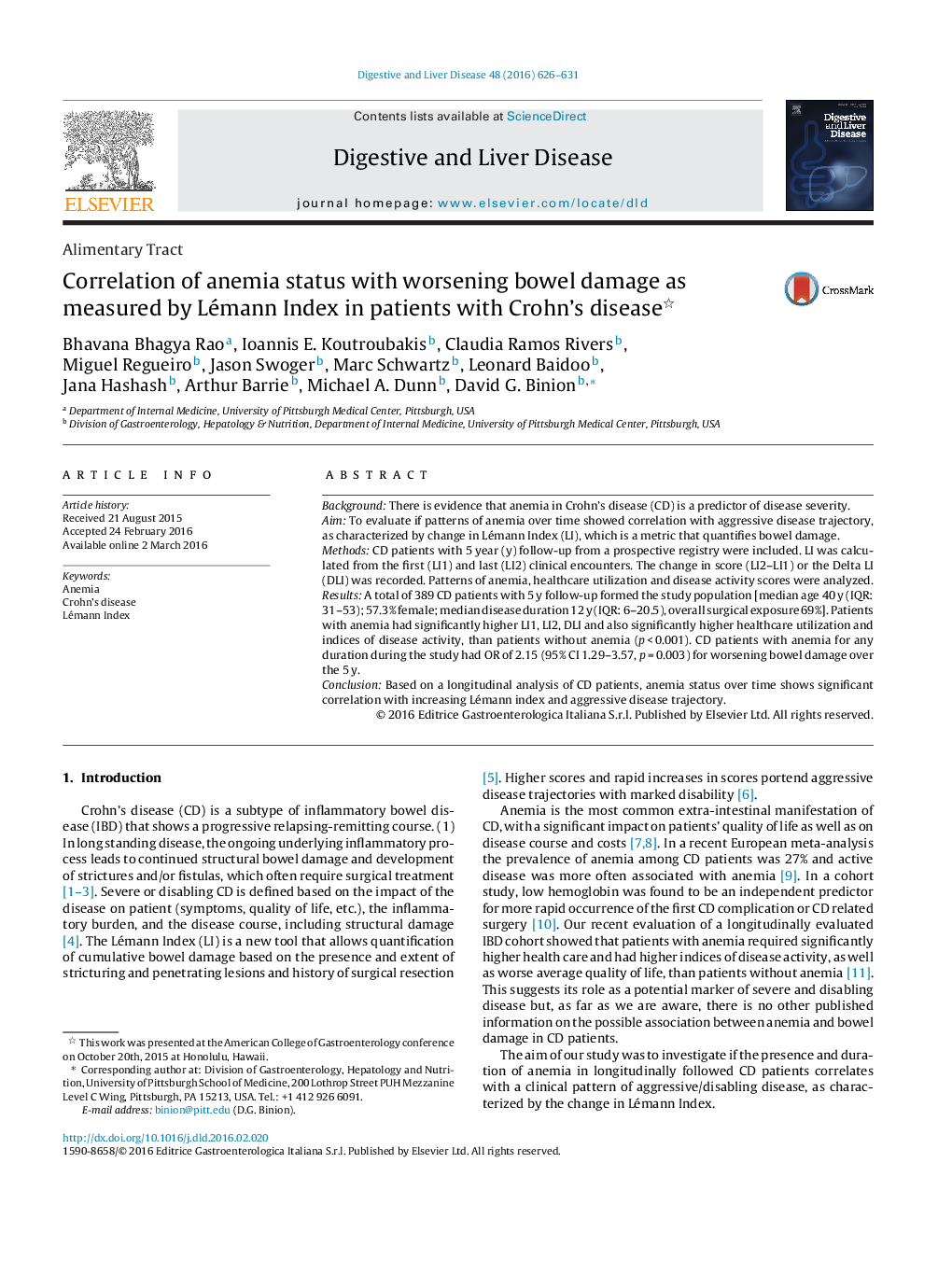| Article ID | Journal | Published Year | Pages | File Type |
|---|---|---|---|---|
| 6088123 | Digestive and Liver Disease | 2016 | 6 Pages |
BackgroundThere is evidence that anemia in Crohn's disease (CD) is a predictor of disease severity.AimTo evaluate if patterns of anemia over time showed correlation with aggressive disease trajectory, as characterized by change in Lémann Index (LI), which is a metric that quantifies bowel damage.MethodsCD patients with 5 year (y) follow-up from a prospective registry were included. LI was calculated from the first (LI1) and last (LI2) clinical encounters. The change in score (LI2-LI1) or the Delta LI (DLI) was recorded. Patterns of anemia, healthcare utilization and disease activity scores were analyzed.ResultsA total of 389 CD patients with 5 y follow-up formed the study population [median age 40 y (IQR: 31-53); 57.3% female; median disease duration 12 y (IQR: 6-20.5), overall surgical exposure 69%]. Patients with anemia had significantly higher LI1, LI2, DLI and also significantly higher healthcare utilization and indices of disease activity, than patients without anemia (p < 0.001). CD patients with anemia for any duration during the study had OR of 2.15 (95% CI 1.29-3.57, p = 0.003) for worsening bowel damage over the 5 y.ConclusionBased on a longitudinal analysis of CD patients, anemia status over time shows significant correlation with increasing Lémann index and aggressive disease trajectory.
